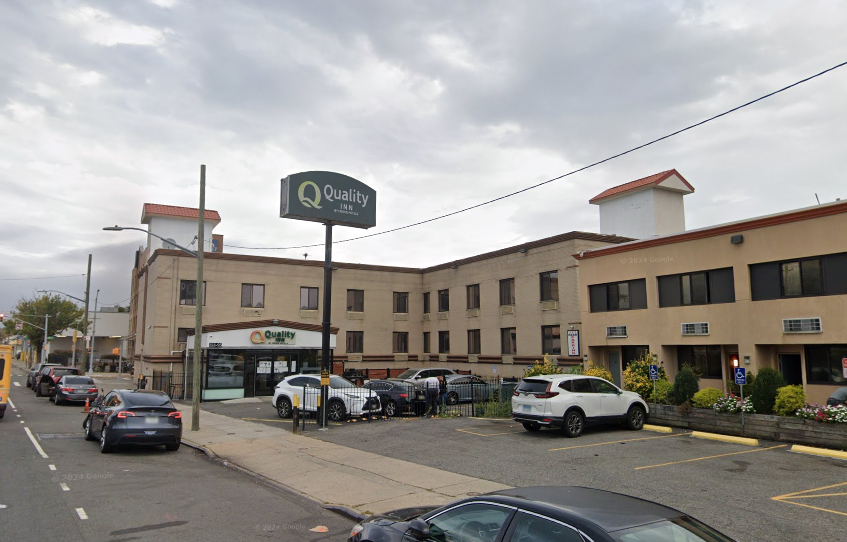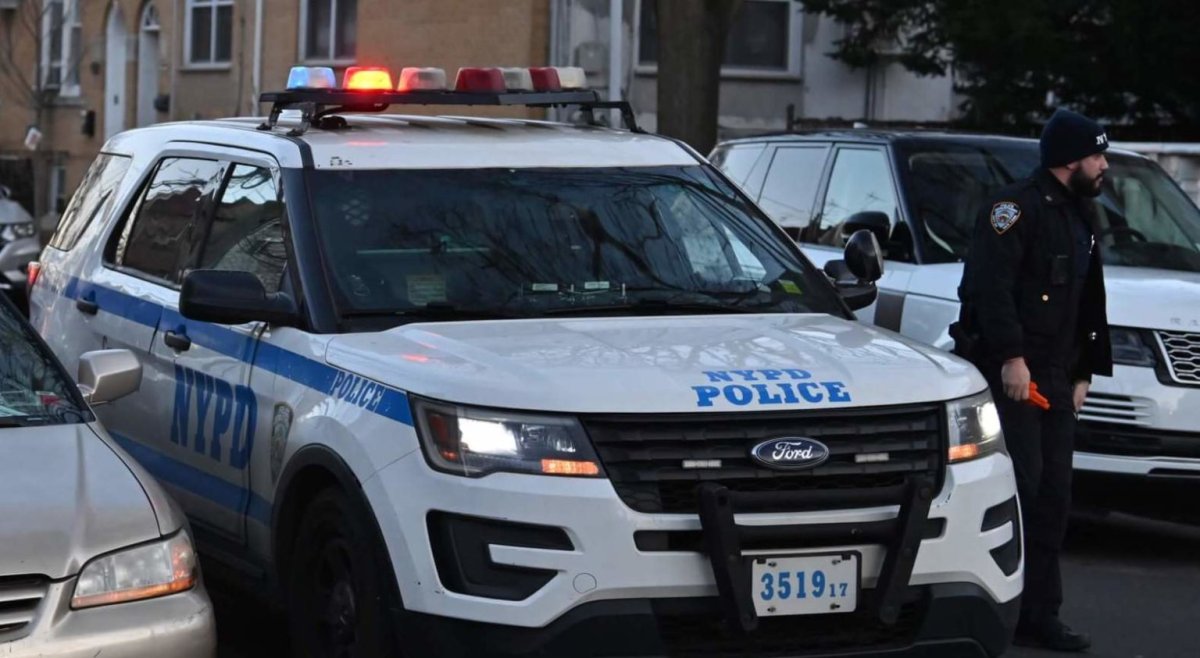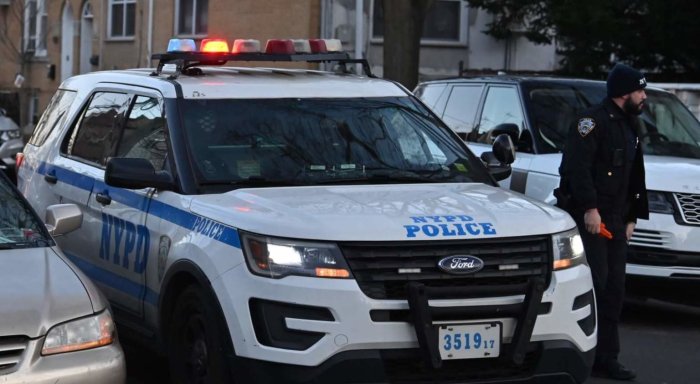By Lincoln Anderson
In an effort to address a steady drumbeat of residents’ complaints in the Christopher Street area, the Sixth Police Precinct and Manhattan district attorney are making some changes to try to bring quality of life problems and prostitution under control.
The precinct recently received eight new officers from the Police Academy, more than the five it usually gets, bringing the precinct’s numbers up to 140 to 150 officers.
Deputy Inspector Theresa Shortell, the precinct’s commanding officer, has assigned extra manpower — a team of five of the new officers and a supervising officer — to cover the Christopher Street area on the overnight tour, from 11 p.m. to 8 a.m. Their focus will be prostitution and noise and other problems associated with people hanging out. Normally, these officers would have been deployed on Bleecker Street to deal with late-night bar noise.
“They’re young, energetic,” said Shortell of the detail of new officers, speaking at last month’s Sixth Precinct Community Council meeting. “They’re going to be out there and they’re going to clean it up.”
Shortell noted that local prostitutes, feeling the heat from the police, have recently started making complaints to the Civilian Complaint Review Board.
However, Shortell said, “They say we’re harassing them. We are moving them. But we have to work within the parameters [of the law].” Yet, she added, the precinct isn’t being put off by the C.C.R.B. complaints. “Now we’re going to address prostitution even harder,” she said.
Police will also be focusing on trying to keep down noise.
“Our focus has changed a little bit because we are getting quality of life complaints on Christopher Street and the side streets about large groups of people at night making noise and acting a little bit disorderly,” Detective Mike Singer, Sixth Precinct community affairs officer, told The Villager in an interview. “Christopher Street is always a major concern. There were problems on Christopher Street 23 years ago when I got here. I think the crowds are a lot younger than when I got here — and when they’re younger, they tend to be noisier.”
In addition, after spending half of the summer without one, just over a month ago the precinct got a second executive officer, Captain Eric Adams. Most precincts normally only have one executive officer — the second in command after the commanding officer — but because most of the Sixth Precinct’s police activity is at night, for the last seven or eight years, it has had two so one officer can be available for the late-night tour.
“Our busiest time starts at approximately 8 p.m. at night and it continues on till 4 a.m., till the bars close,” Singer said. The reason the precinct didn’t have an executive officer for a brief period this summer, according to Singer, is because “they [the Police Department] didn’t have enough captains to go around.”
Some speculated that Adams, who outside of the Police Department is the head of the group 100 Blacks in Law Enforcement, was brought in because many of the gay youth who hang out in the Village at night are African-American and Latino. But Singer said that’s not the case.
While admitting Adams is “high profile” because of the media coverage he gets with 100 Blacks in Law Enforcement, Singer said he wasn’t assigned to the precinct for any special reason other than that he is an executive officer.
“We have a late-night condition,” Singer said. “So it takes another captain to make sure that every Thursday, Friday and Saturday night we have an executive officer for the late night shift, 4 p.m. to midnight.”
In related news, the district attorney and Office of Court Administration are taking a new approach to fighting prostitution. Under a new initiative started Sept. 12, prostitutes who are arrested in Manhattan will, to the greatest extent possible, have their cases heard by one judge — Eileen Koretz, the judge of the Midtown Community Court. This new arrangement is intended to stop prostitutes from “judge shopping” at Criminal Court, at 100 Centre Street — or, in other words, trying to find the judge who will give the most lenient sentence.
Midtown Community Court opened in 1993 to deal with low-level crimes in the Times Square area. Since 1994, all Manhattan prostitution cases have been arraigned there, but unless the prostitute entered a plea, they were then sent to Criminal Court, at 100 Centre Street, for adjudication, leading to about 50 percent of cases being heard in Criminal Court.
Midtown Community Court operates Monday to Friday, from 9 a.m. to 5 p.m. Under the new arrangement, prostitutes who are arrested at night may have their cases held over until the next day and heard in Midtown Community Court. Prostitutes arrested on weekend nights will be arraigned at 100 Centre Street, but if the case is not adjudicated or no plea is made by the prostitute, it will be directed to Midtown Community Court.
The maximum allowable jail time for prostitution is 90 days. Village residents and police alike complain that it’s hard to make a dent in the area’s prostitution problem when hookers get off with time served — the period it takes to go through the system after being arrested — leading to “revolving-door justice.”
But Courtenaye Jackson-Chase, Midtown Community Court project director, said Judge Koretz is tough on prostitutes.
“People are held accountable here,” Jackson-Chase said. “Absolutely — she’s no soft touch.”
At the court, the streetwalkers will be given counseling on other employment options to help them get out of what they call “the life.” In some cases, community service will be part of the penalty: In an attempt to get them doing something constructive and also make them too tired to prostitute, the hookers will be outfitted with Midtown Community Court vests and put to work for six hours at night removing graffiti, sweeping streets, cleaning litter out of tree pits and cleaning playgrounds.
For the most hardcore recidivist prostitutes, the court will recommend a penalty of 90 days in prison, said Assistant District Attorney Gary Galperin, deputy chief of the trial division in the Manhattan district attorney’s office.
“The more priors you have the more jail you should be getting — up to 90 days,” he told the Sixth Precinct Community Council. “It is relatively unique to have one judge hear all the cases on one penal law.”
“We know prostitution is destroying the quality of life on the West Side,” said court project director Jackson-Chase. “For the people that are hard cases there will be no more forum shopping.”


































